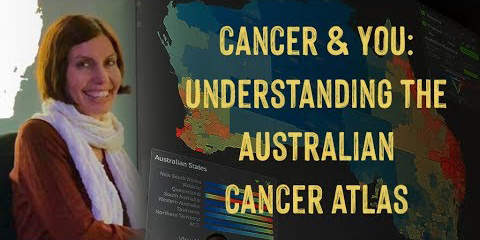
Cancer Council Queensland (CCQ)
The Cancer Council Queensland is Queensland’s leading non-government community organisation in cancer control. They are committed to providing all Queenslanders with the best possible prospects of preventing, detecting, effectively treating and surviving a cancer diagnosis.
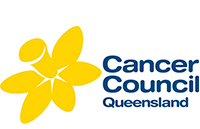
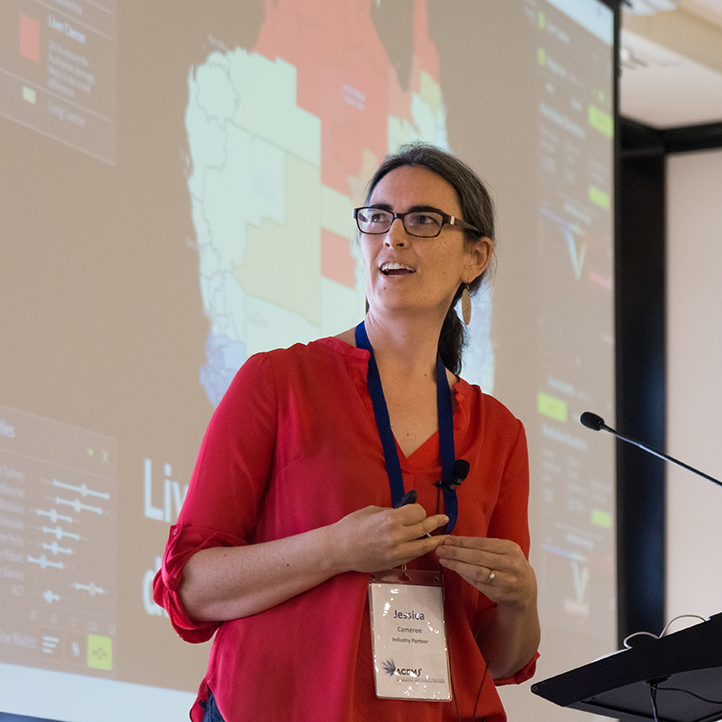
CCQ’s Jessica Cameron presenting at the 2019 ACEMS Retreat
ACEMS and CCQ have enjoyed a strong and productive collaboration since CCQ joined the Industry Affiliate Program in 2016. This collaboration has and continues to encompass research and other engagements.
A main research focus of this collaboration has been, and in 2019 continued to be, the Australian Cancer Atlas – a transdisciplinary multi-year research project which has delivered significant impact, the success of which is being built on (read more about this below).
CCQ enjoys participation in ACEMS networking events, seminars, and other activities offered as part of the Centre’s Industry Affiliate Program. A highlight for 2019 has been CCQ’s Jessica Cameron attending and presenting at the ACEMS Retreat. We look forward to continuing research collaborations with Cancer Council Queensland in 2020.
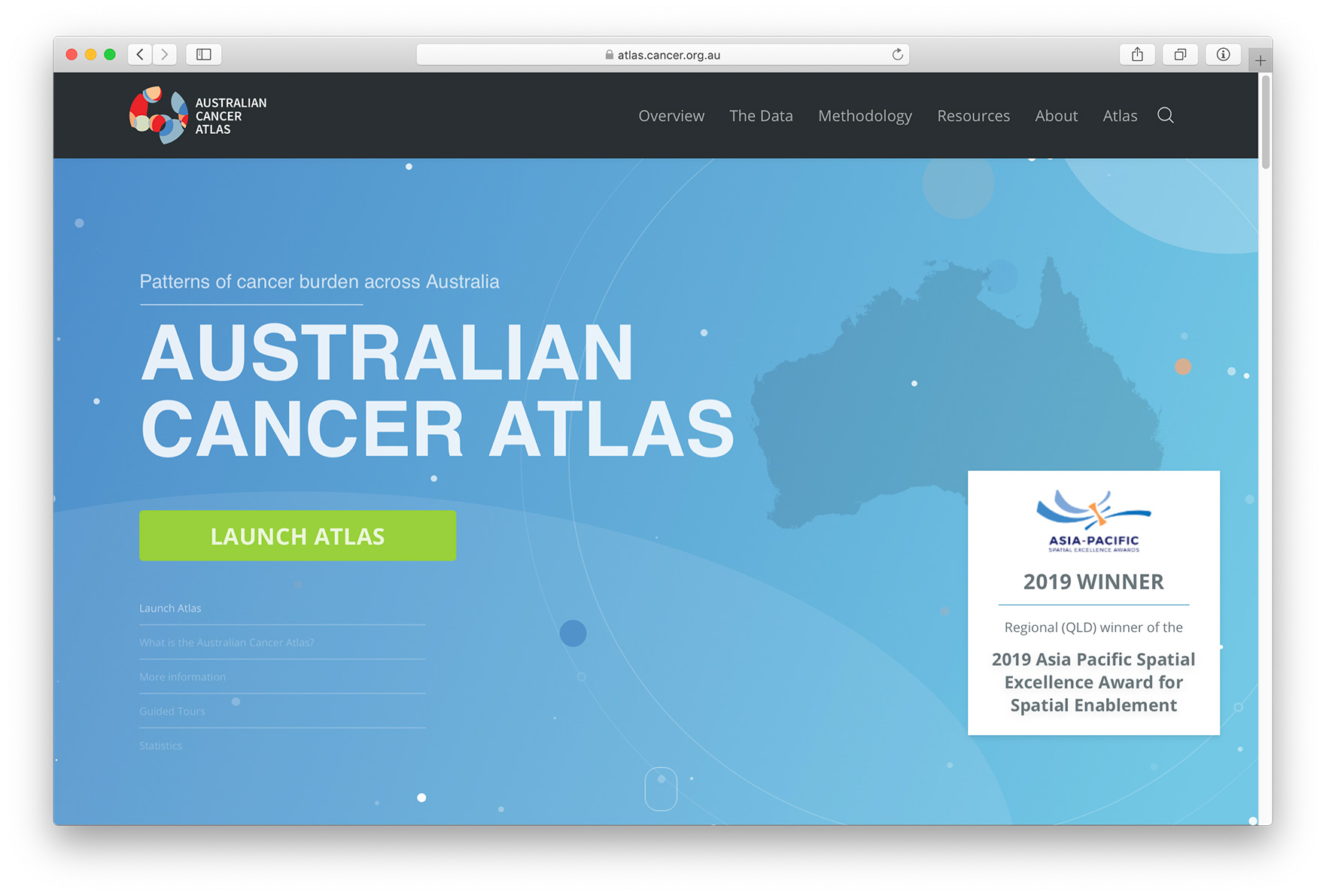
Australian Cancer Atlas website
Australian Cancer Atlas
In 2019, ACEMS has continued to build on the success of the Australian Cancer Atlas, which was launched in 2018 as a collaboration between CCQ, ACEMS and QUT.
Cancer is a leading cause of illness in Australia – responsible for around three out of every 10 deaths, and an estimated 145,000 new diagnoses in 2019 – and has a significant impact on people and our health care system (source: AIHW).
The Australian Cancer Atlas is an important tool for use in the understanding and control of cancer, being the first online, interactive platform showing how cancer diagnosis and survival for different cancer types varies geographically (across small areas).
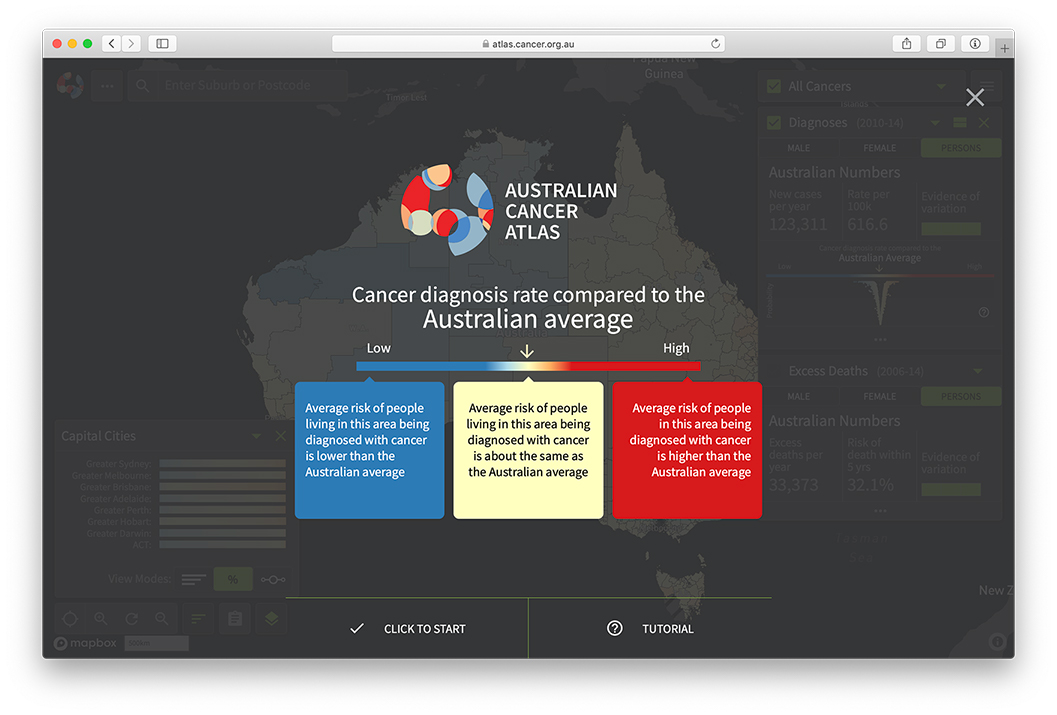
A view of the Australian Cancer Atlas platform accessible here.
It uses cutting edge methods in geospatial health statistics to provide a comprehensive national picture of how the burden of cancer varies depending on where you live.
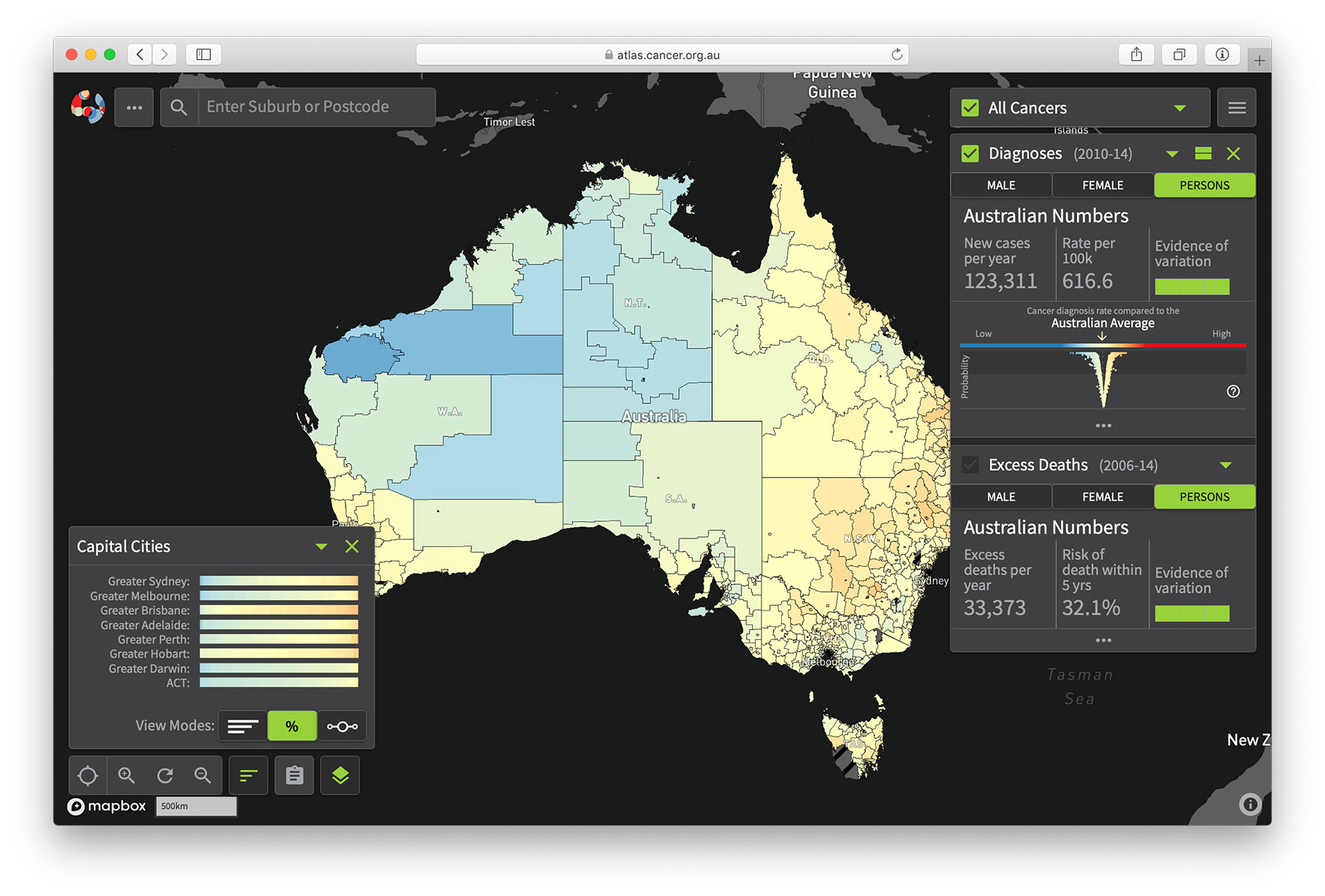
A view of the Australian Cancer Atlas platform showing geographical variation in cancer burdens.
The Australian Cancer Atlas is freely accessible to the public and has been used: to inform public health policy; for education and training (including in cancer epidemiology training courses); for research (including in the National Viral Hepatitis Mapping Report by the Doherty Institute for Infection and Immunity); and the development of a similar atlas in New Zealand.
2019 highlights related to the Australian Cancer Atlas include:
- The Australian Cancer Atlas winning the 2019 Asia Pacific Spatial Excellence Award (Queensland) for spatial enablement.
- Access by more than 4,000 users in 2019, bringing the access total to more than 44,000 since launch, with users from nearly every country around the world.
- Multiple educational events hosted by ACEMS to teach the public about the Australian Cancer Atlas and its use.
- Continuing work with the New Zealand Ministry of Health to develop a New Zealand Cancer Atlas.
- An ACEMS Public Lecture by Associate Investigator Dr Susanna Cramb which highlights the key findings, gives insights into the methods and data used, and answers the question: "What do the results mean for you?".
Watch Susanna’s talk:
